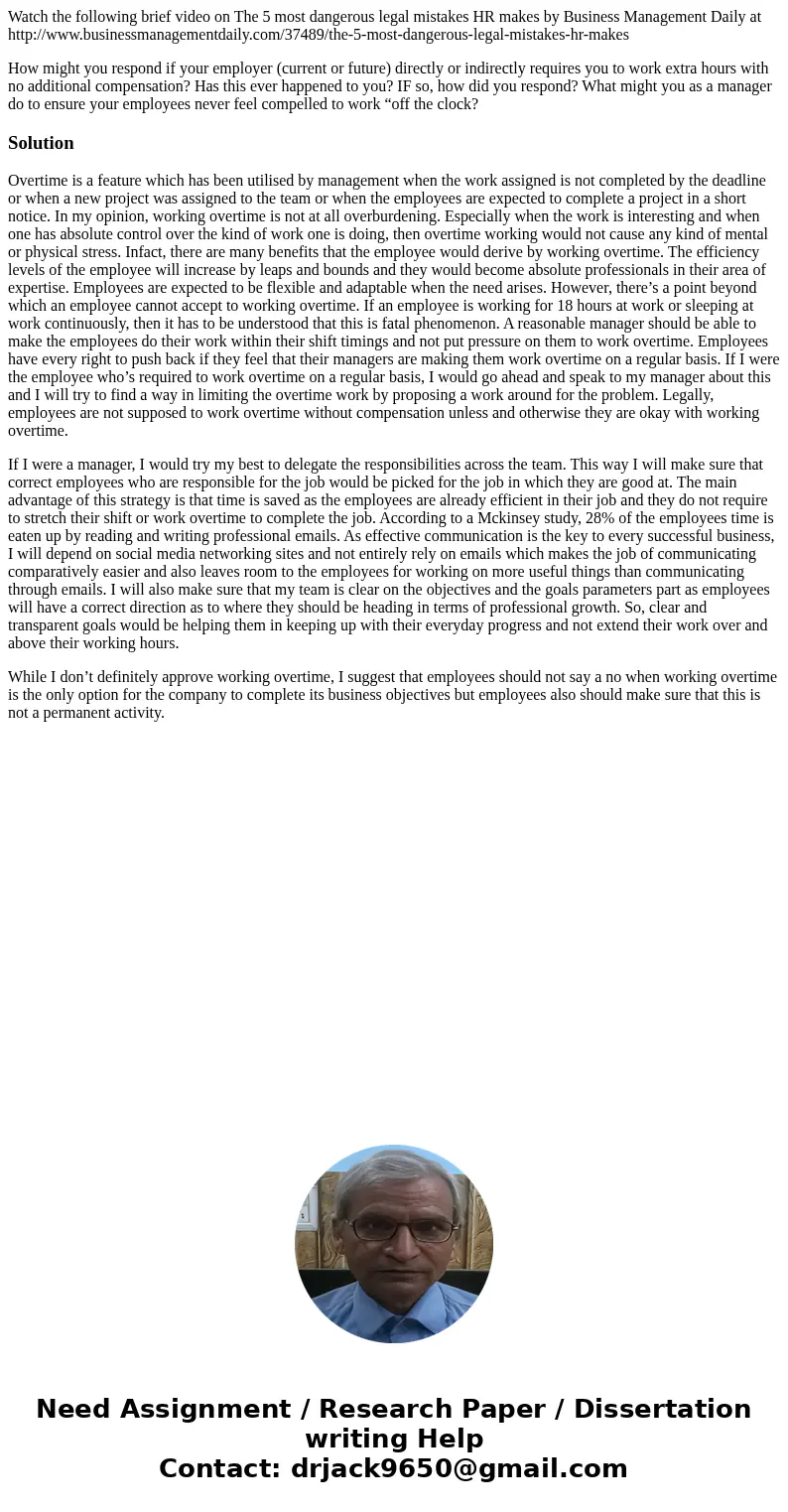Watch the following brief video on The 5 most dangerous lega
Watch the following brief video on The 5 most dangerous legal mistakes HR makes by Business Management Daily at http://www.businessmanagementdaily.com/37489/the-5-most-dangerous-legal-mistakes-hr-makes
How might you respond if your employer (current or future) directly or indirectly requires you to work extra hours with no additional compensation? Has this ever happened to you? IF so, how did you respond? What might you as a manager do to ensure your employees never feel compelled to work “off the clock?
Solution
Overtime is a feature which has been utilised by management when the work assigned is not completed by the deadline or when a new project was assigned to the team or when the employees are expected to complete a project in a short notice. In my opinion, working overtime is not at all overburdening. Especially when the work is interesting and when one has absolute control over the kind of work one is doing, then overtime working would not cause any kind of mental or physical stress. Infact, there are many benefits that the employee would derive by working overtime. The efficiency levels of the employee will increase by leaps and bounds and they would become absolute professionals in their area of expertise. Employees are expected to be flexible and adaptable when the need arises. However, there’s a point beyond which an employee cannot accept to working overtime. If an employee is working for 18 hours at work or sleeping at work continuously, then it has to be understood that this is fatal phenomenon. A reasonable manager should be able to make the employees do their work within their shift timings and not put pressure on them to work overtime. Employees have every right to push back if they feel that their managers are making them work overtime on a regular basis. If I were the employee who’s required to work overtime on a regular basis, I would go ahead and speak to my manager about this and I will try to find a way in limiting the overtime work by proposing a work around for the problem. Legally, employees are not supposed to work overtime without compensation unless and otherwise they are okay with working overtime.
If I were a manager, I would try my best to delegate the responsibilities across the team. This way I will make sure that correct employees who are responsible for the job would be picked for the job in which they are good at. The main advantage of this strategy is that time is saved as the employees are already efficient in their job and they do not require to stretch their shift or work overtime to complete the job. According to a Mckinsey study, 28% of the employees time is eaten up by reading and writing professional emails. As effective communication is the key to every successful business, I will depend on social media networking sites and not entirely rely on emails which makes the job of communicating comparatively easier and also leaves room to the employees for working on more useful things than communicating through emails. I will also make sure that my team is clear on the objectives and the goals parameters part as employees will have a correct direction as to where they should be heading in terms of professional growth. So, clear and transparent goals would be helping them in keeping up with their everyday progress and not extend their work over and above their working hours.
While I don’t definitely approve working overtime, I suggest that employees should not say a no when working overtime is the only option for the company to complete its business objectives but employees also should make sure that this is not a permanent activity.

 Homework Sourse
Homework Sourse